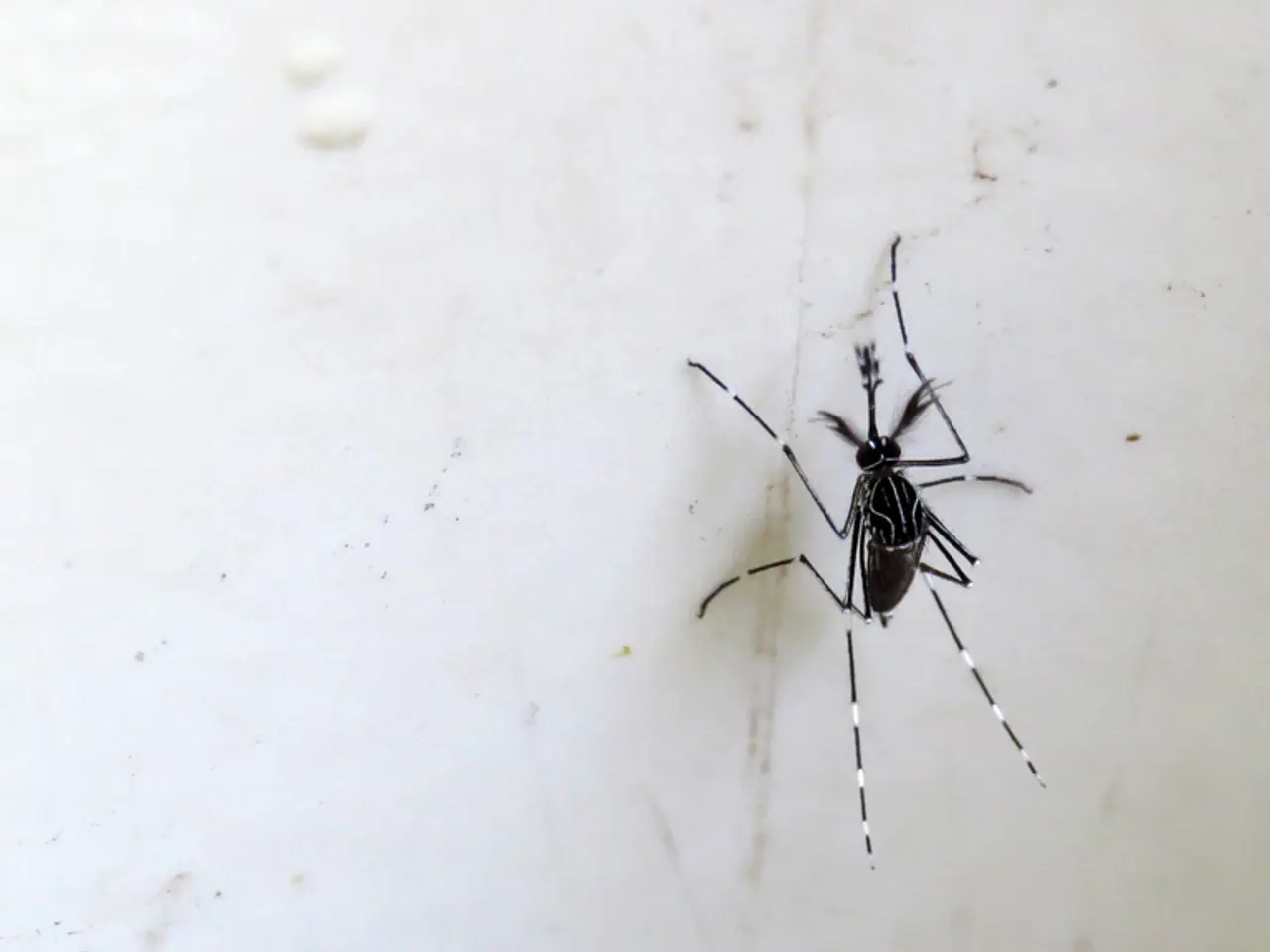Practical Methods for Mitigating Summer Mosquito Bites
Mosquito bites can be more than just an annoyance – they can lead to itching, swelling, and even potentially serious health issues. Here's what you need to know about treating and preventing mosquito bites, as well as understanding the signs that indicate a visit to the doctor is necessary.
If a mosquito bite doesn't heal or shows signs of infection, such as increased pain, swelling, redness, or pus, it's essential to seek medical attention. Home remedies can help alleviate the symptoms of mosquito bites. For instance, honey, known for its soothing properties, can aid in healing, reduce swelling, and prevent infections. Onions, containing the anti-inflammatory plant pigment quercetin, can also help reduce inflammation. Aloe vera, baking soda paste, calamine lotion, and even toothpaste containing menthol and baking soda can provide relief from itching and inflammation.
To prevent mosquito bites, it's crucial to adopt several strategies. Firstly, avoid mosquito-active times and places. Mosquitoes are most active during warm, humid weather, especially dawn and dusk. It's also essential to avoid standing water where mosquitoes breed, such as puddles, birdbaths, buckets, and gutters.
Wearing protective clothing, such as loose-fitting, light-coloured long sleeves and pants, can reduce skin exposure. Treating clothing with permethrin insecticide repels and kills mosquitoes, remaining effective after washing.
Using EPA-approved repellents containing DEET (20–50%), picaridin (≥20%), or oil of lemon eucalyptus is also advisable. Apply sunscreen first, then repellent, avoiding sensitive areas like eyes, mouth, and broken skin.
Protecting your environment is equally important. Use window and door screens, mosquito nets (ideally permethrin-treated), air conditioning, and mosquito coils or diffusers indoors. Keep bedrooms dark and cool, and use natural repellents like citronella, lavender, and lemon eucalyptus oils or plants to discourage mosquitoes.
Regularly removing or emptying containers holding standing water around your home can also help reduce mosquito reproduction.
These combined strategies significantly reduce mosquito exposure, lowering the risk of bites and mosquito-borne illnesses such as skeeter syndrome and allergic reactions.
Skeeter syndrome is a rare condition causing severe allergic reactions to mosquito bites. Symptoms may include redness, itching, swelling, warmth, bruising, blisters, hives, swollen lymph nodes, fever/chills, severe headache, nausea/vomiting, confusion, fatigue/weakness, muscle weakness, and anaphylaxis.
Oatmeal can help alleviate both itching and swelling due to its compounds, including avenanthramides and polyphenols. Picaridin and DEET are effective mosquito repellents, blocking mosquitoes' ability to find human skin and confusing their sense of smell, respectively. Picaridin has no odour, leaves no marks, and can last for 8-10 hours. DEET's protection duration depends on concentration (2 hours for 10% and up to 5 hours for 30%).
It's essential to wash DEET off as soon as entering a building, and higher concentrations provide longer protection. Cold compresses, such as an ice cube wrapped in cloth, can help reduce swelling and itching from mosquito bites by constricting blood vessels. Witch hazel causes the skin to contract, reducing inflammation and providing a soothing sensation.
Mosquitoes are attracted to carbon dioxide, blood type (O preferred), ammonia and lactic acid in sweat, genetically higher body temperatures, exercise, fever, pregnancy, and dark clothing (black, dark blue, or red).
There are over 200 species of mosquitoes in the US, but only about 12 of them spread microbes that can make people sick. It's best to always use repellents when spending time outdoors, regardless of the time of day, to prevent mosquito bites effectively.
To ensure the best skin care and overall health, it's advisable to not only employ effective mosquito bite treatment methods but also prevent bites proactively. Home remedies like honey, onions, aloe vera, baking soda paste, calamine lotion, toothpaste, and oatmeal can help alleviate mosquito bite symptoms, but seeking medical attention is necessary if a bite shows signs of infection or doesn't heal. In addition, picaridin and DEET are science-backed ingredients in mosquito repellents, aiding in repelling and preventing mosquito bites, offering protection for both health-and-wellness and skin-care purposes.




